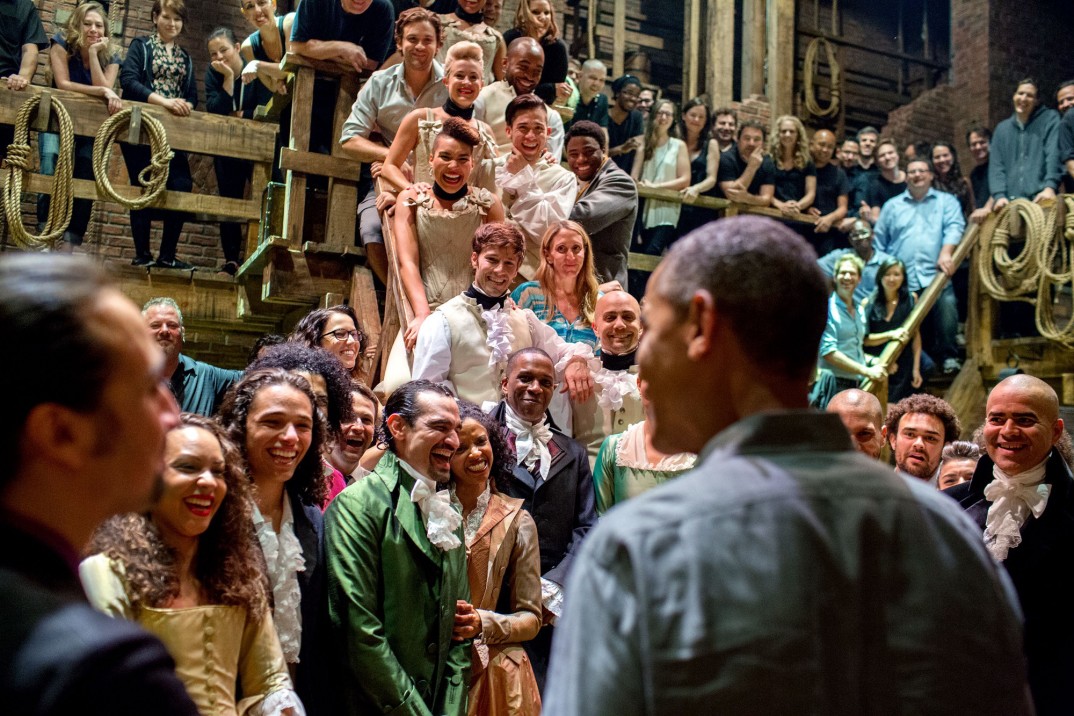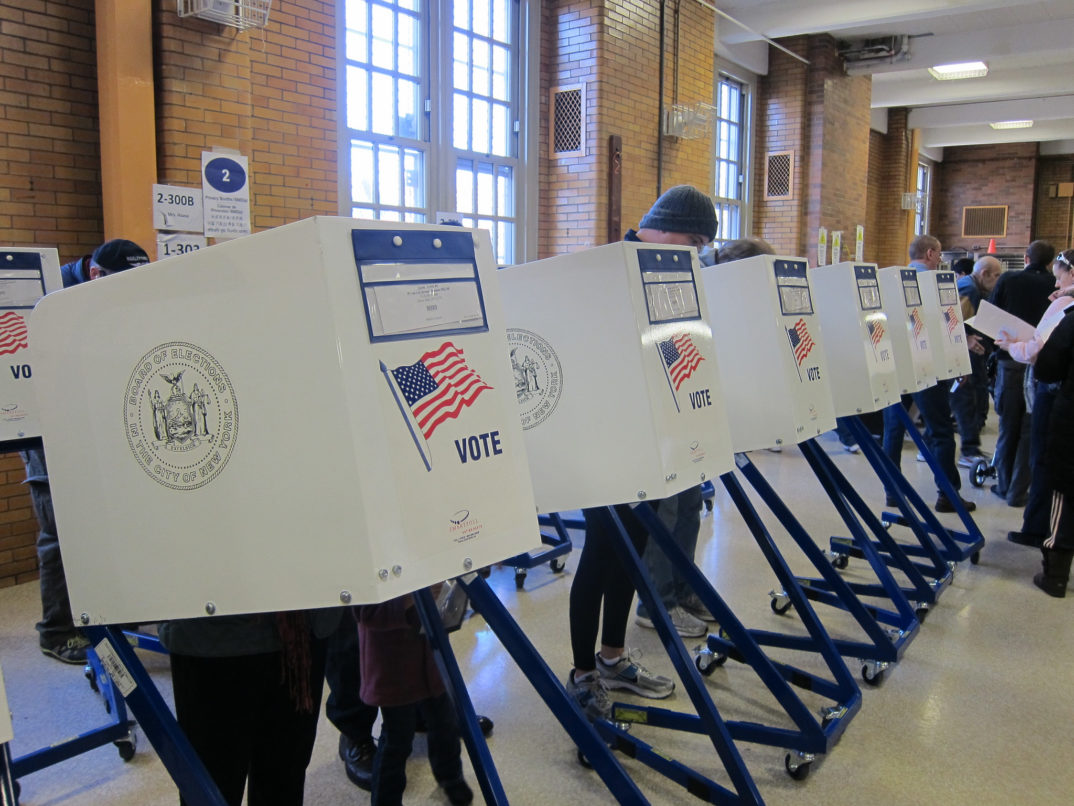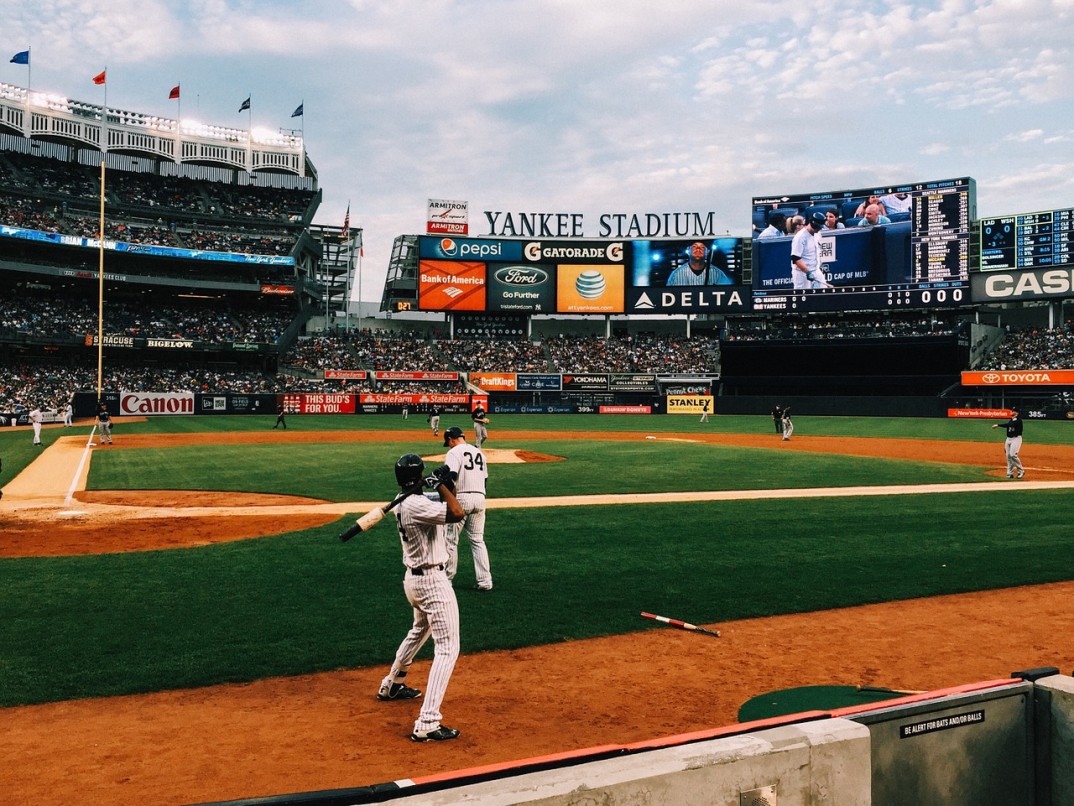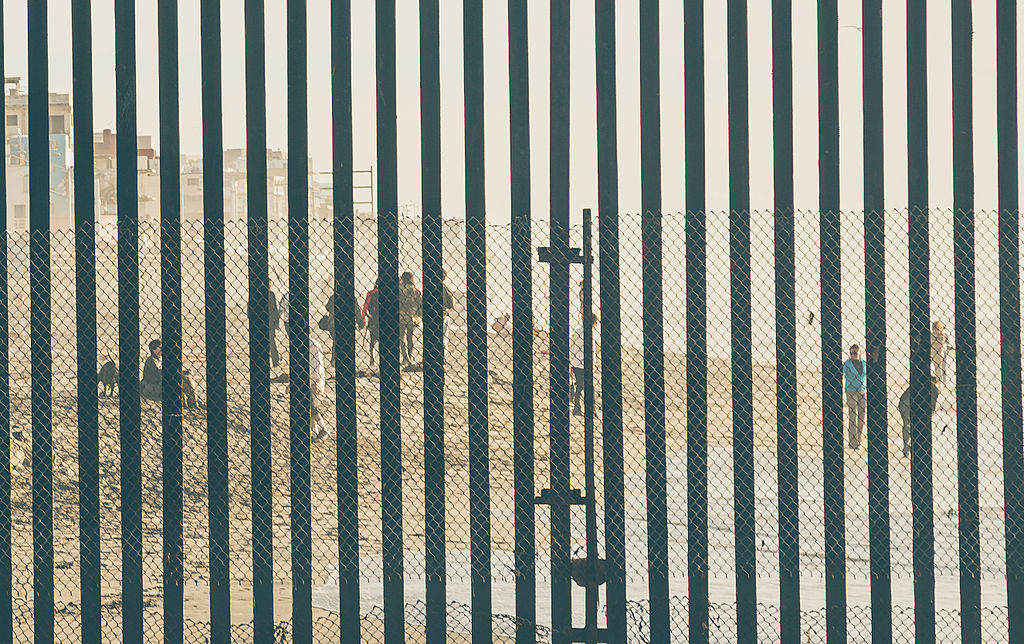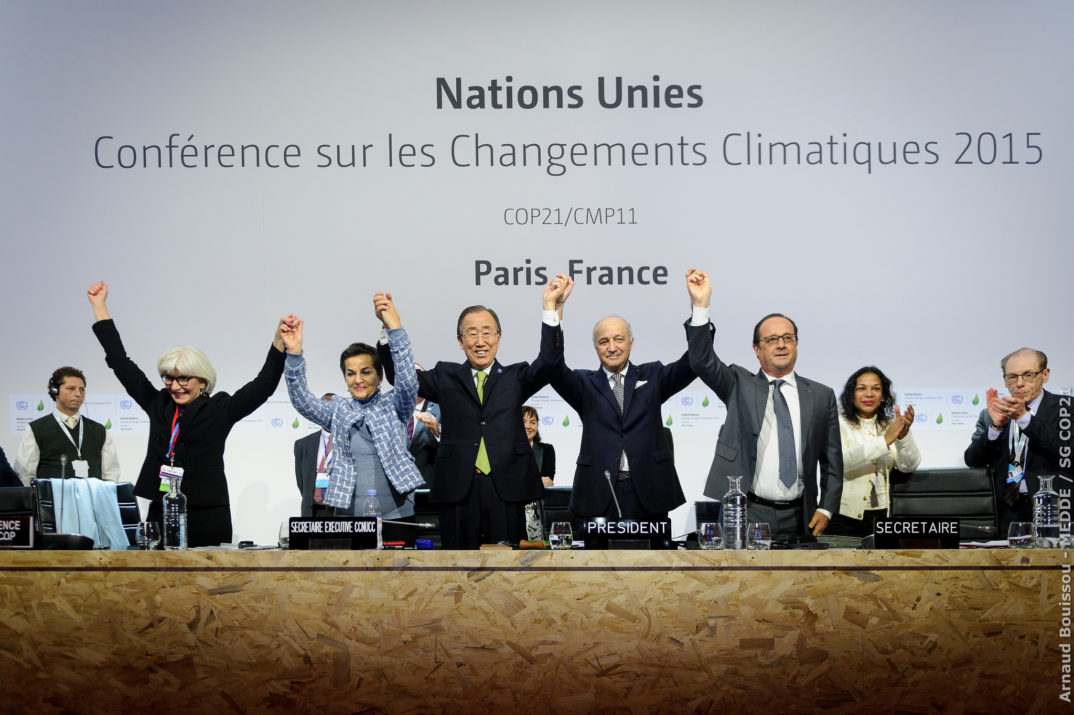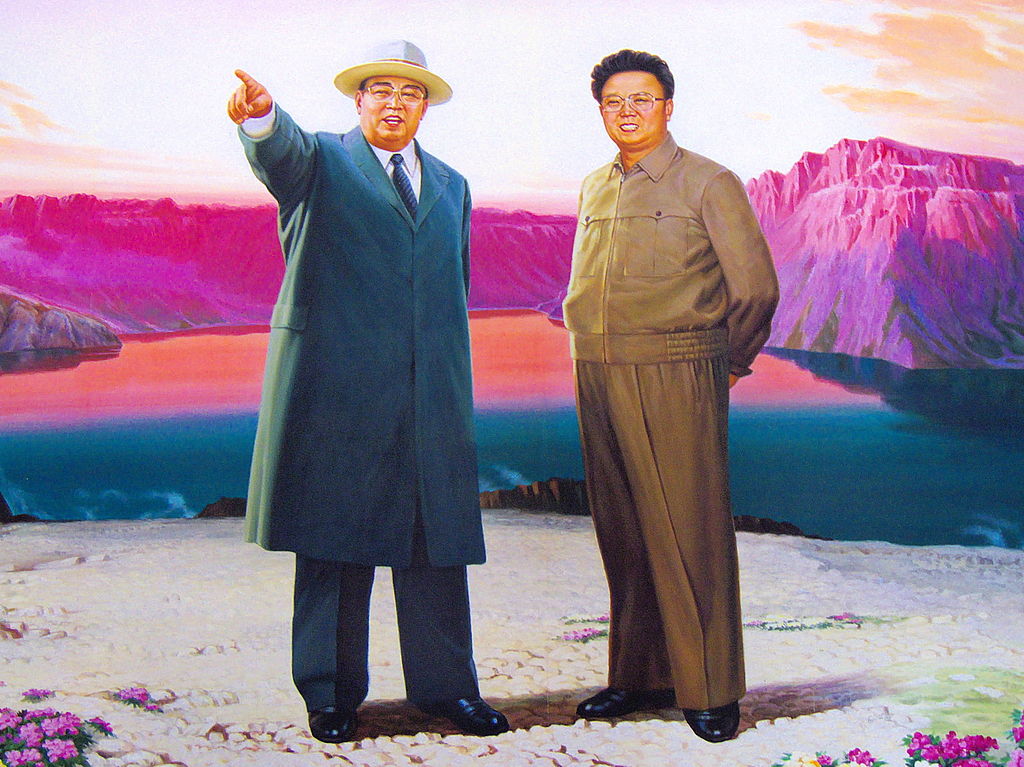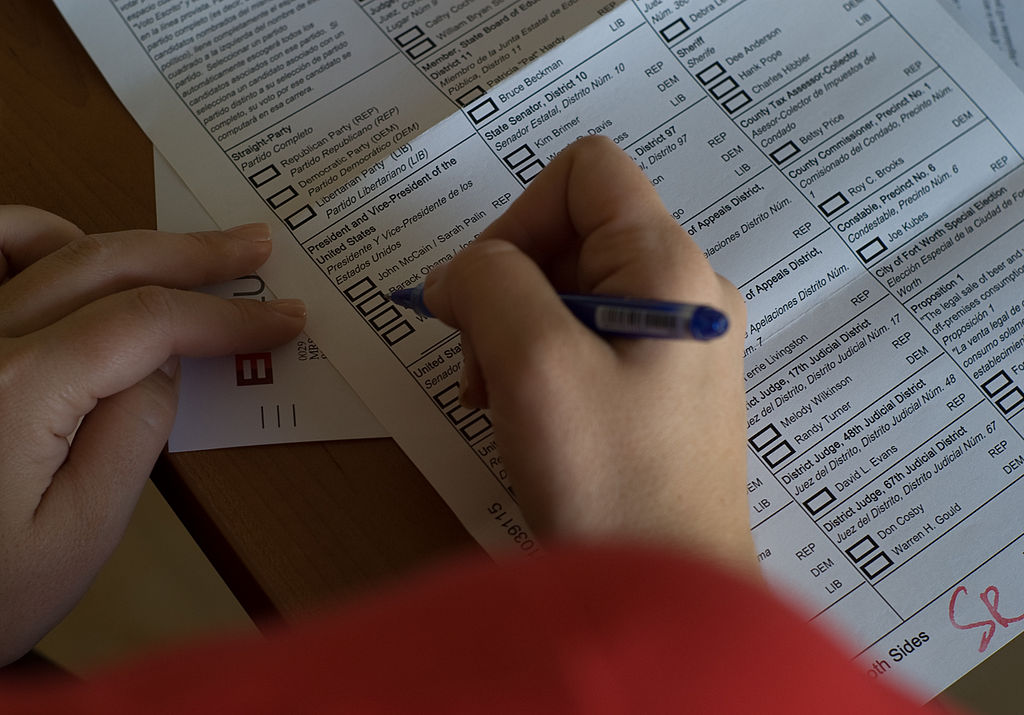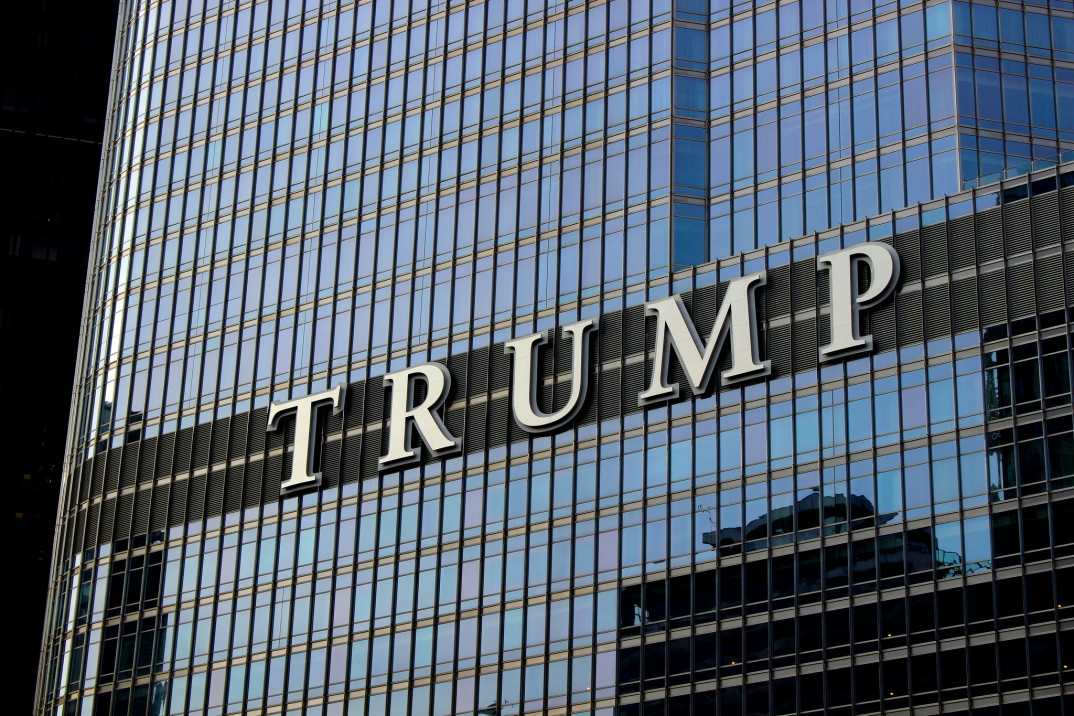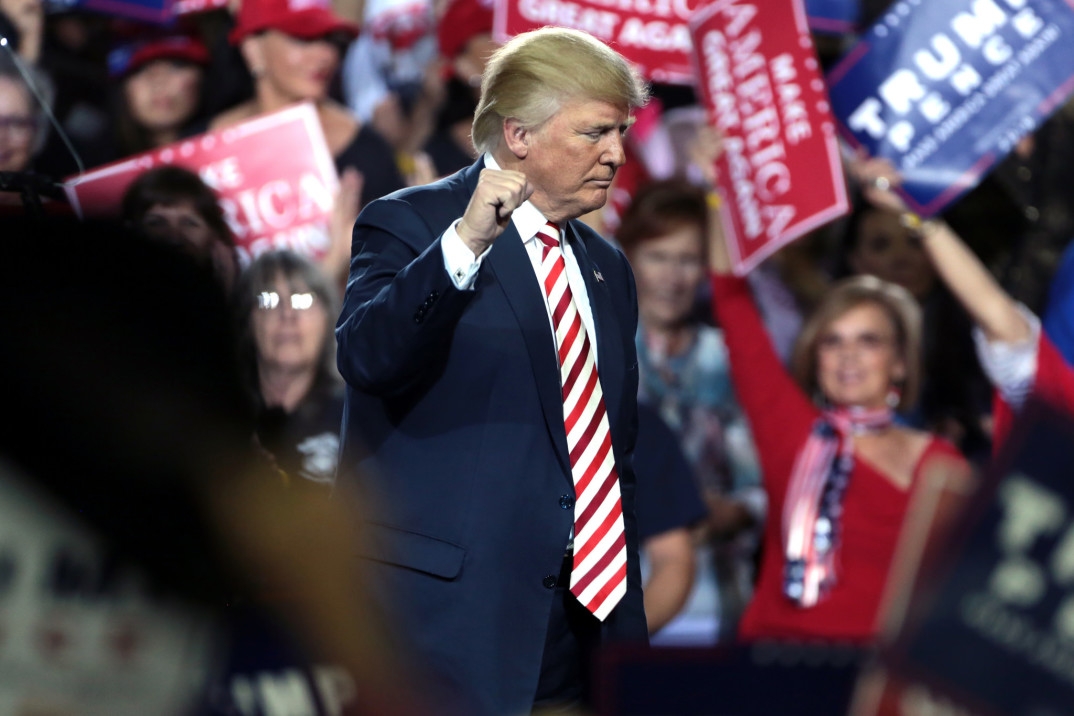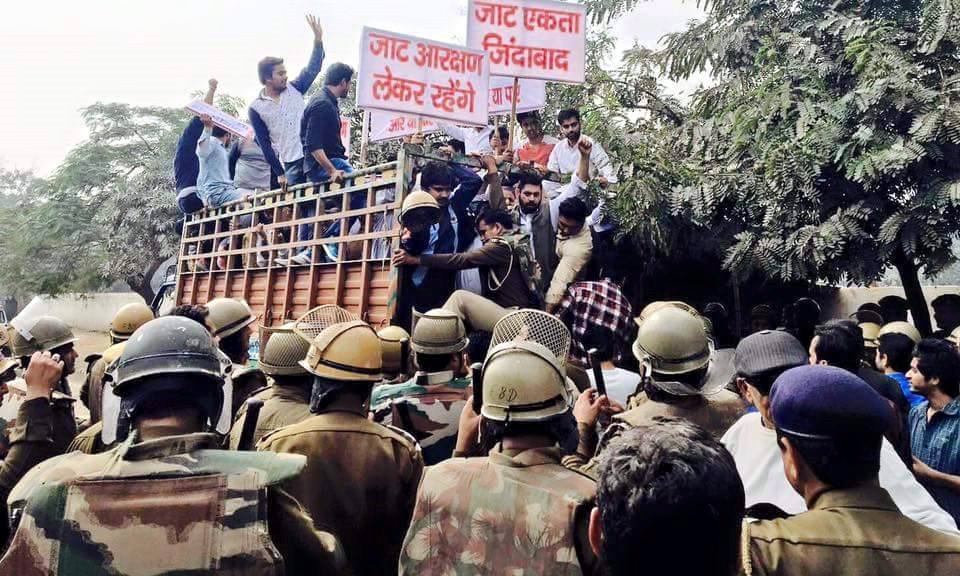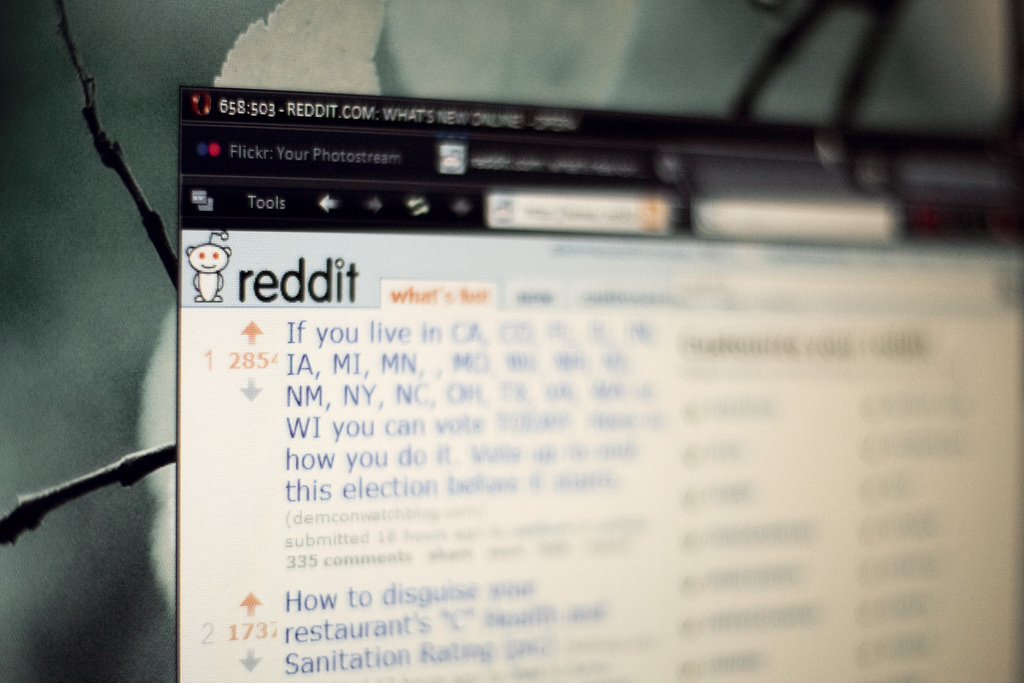Recently, Vice President-elect Mike Pence attended a performance of the smash Broadway musical, Hamilton. During closing curtain remarks, Pence was directly addressed by the cast of the musical. The address encouraged Pence and the rest of the Trump administration to uphold their promise to truly be an administration working toward the welfare of all Americans. The cast expressed that the diversity represented in their multi-ethnic retelling of the founding of America is a true representation of the American dream and that Trump’s administration should respect the diversity so cherished in American values. You can view the full video of the address here.
Calexit: In Response to Trump
Since last week’s presidential election, over half the nation has been in a state of disappointment, shock, and even mourning. They have coped with this upset in a variety of ways: coping on their own, taking to the streets in protest, and threatening to move to Canada. One small but loud movement in California even calls for its state’s secession from the union. Defeated by the outcome of the election, some members of this blue state have lost faith in the nation. The Yes California Independence Campaign promotes the passing of a referendum that would declare California as an independent nation in a vote. The initiative has come to be known as the “Calexit” vote. The “Yes California” website brags, “As the sixth largest economy in the world, California is more economically powerful than France and has a population larger than Poland. Point by point, California compares and competes with countries, not just the 49 other states.”
Presidential Clemencies and the Role of Punishment
On November 22nd, President Obama reduced the prison sentences of 79 drug offenders. This is the latest in a burst of clemencies he has awarded during his last year in office. Traditionally, there is a burst of clemencies towards the end of a president’s term, when there are fewer political hurdles and relationships to maintain, but this week’s sentence reductions bring Obama past the 1,000 clemency mark – more than the past 11 presidents put together.
Continue reading “Presidential Clemencies and the Role of Punishment”
The Church of Trump?
Shortly following Trump’s victory as the new president-elect, a pastor in Seattle came to work to find his church branded in paint with “F*** organized religion”. Bewildered, the pastor was unsure whether this resentment was harbored towards his church or towards Trump’s victory. Many would question whether these two subjects can be divided at all. After all, evangelical Christians played a dominant role in this election as they represent a quarter of the U.S. population. Although the mingling of evangelical Christianity and conservative politics is not new, Donald Trump played a unique role as the champion of white evangelical Christians while also revealing how disparate this voting population can be.
Compulsory Voting in America
This article has a set of discussion questions tailored for classroom use. Click here to download them. To see a full list of articles with discussion questions and other resources, visit our “Educational Resources” page.
Voter turnout in America is infamous for being extraordinarily low. Consistently, between 50% to 60% of eligible voters actually turn out to vote in presidential election year; the number is even lower during midterm elections, when the election is perceived as lower stakes. The 2014 midterm elections saw a dismal turnout of 36%. In 2016, voter turnout was at a 20-year low, with 55% of the age-eligible population voting in the presidential election. This means that a very small percentage of the country actually votes for the winning presidential candidate, and/or the members of both Congressional chambers, and that nearly half the country does not participate in the selection process. Some countries have taken what appears to be a drastic approach to resolving this problem: compulsory voting.
More than 20 countries around the world have adopted compulsory voting programs. Compulsory voting is just what it sounds like: by law, all those who are eligible to vote must vote. While compulsory voting sounds like a policy that would take place in an authoritarian regime at first glance, compulsory voting laws tend to have relatively lax punishments for refusal to vote. The Atlantic reports a $20 to $50 fine in Australia for those who fail to have an excuse for not voting, and no laws prohibit voters from simply turning in a blank ballot if they so choose. Turnout in countries with compulsory voting can be as high as 85%. This turnout remains consistent in most elections. Due to the strikingly low voter turnout in the U.S., President Obama endorsed the idea in 2015 when asked about economic inequality.
A compulsory voting law may in fact be beneficial for the U.S. Countries with compulsory voting laws have lower wealth inequity, next to no political corruption, and higher faith in the democratic process. Working class voters who tend to not participate in elections or those voters disengaged from the political process would have to get involved; Australia also experienced a low voter turnout rate before switching to compulsory voting in 1924. Voter disenfranchisement has been a hot topic across the nation for years – whether it’s voter ID laws that restrict access to the polls, elections happening on days in which low-income workers find it nearly impossible to get off work, or polling locations that are not easily accessible. Therefore, the well-off have significantly more power in politics than the average citizen. Compulsory voting laws would serve to level the playing field at least somewhat, giving those who are typically underrepresented a more significant voice, thus forcing politicians to address the needs of those communities.
Some of these issues could also be resolved through expanding access to voting. Some proposed solutions include extending early voting, moving Election Day from a Tuesday to a weekend, automatic registration upon receiving a driver’s license. One issue with compulsory voting laws is enforcement – a $20 to $50 fine every two years isn’t a steep enough fee that most households can’t pay it and have to vote. Laws like this are difficult to enforce when the consequences are not steep. Other experts told Business Insider that, since Americans tend to value individual liberty very highly, adding another mandatory civic duty on top of taxation and jury duty would generate too much political backlash. Finally, compulsory voting tends to make the country swing to the left, since many non-voters lean Democratic. Therefore, predominantly Republican states would likely not support the laws on a state level, and the federal level would likely not be able to implement the laws if Republicans held both or either chamber and/or the White House.
Given that such a low percentage of Americans actually vote in elections, some changes to the voting system need to be made to ensure that Americans are fairly getting their say in elections. While compulsory voting may never be a policy in America, or at least not in the foreseeable future, taking steps to improve voter turnout by revamping the voting process would be beneficial to those who are underrepresented in our democracy.
Is Sport the Opium of the People?
The Chicago Cubs have won the 2016 World Series. The curse is finished; after 118 years, the wait is finally over. Who the hell cares? Well, a lot of people. There has been an unusual hype regarding this sporting event. Five million fans showed up for the celebration parades.
Shared Grief Does Not Always Unite
The past few weeks have been hard for those who are fervently anti-Trump. On the weekend after the election, I was playing with my baby daughter, and made a comment about how empathetic I am.
My partner, who was lying on the couch next to me, muttered sarcastically: “Why don’t you go empathize with the white working class.”
My reaction was immediate, unreflective, and dramatic: I started shouting at him. That comment was uncalled for, utterly gratuitous! I was on the same side as his! I in no way thought that white men were more deserving of empathy than others, as I took him to imply. Finally, I started using expletives, and told him to f*ck off.
Yes, I told my beloved partner, a man of color who has been grieving the electoral result and has found it hard to get out of bed since then, that he could f*ck off.
Building the Wall
Building walls to demarcate nation-state borders has been gaining political traction, as of late. The phenomenon of building walls is ultimately seen as a solution, and an easy answer for complex problems: a “if we can’t solve it, let’s just insulate ourselves from it” mentality is taking hold. In a recent op-ed for the New York Times, Tom Vanderbilt takes aim at the wall building phenomenon and dispels the metaphor–and promise–that president-elect Donald Trump used to bolster his campaign and appeal to voters: building a border wall on the Mexico-U.S. border.
A National Cash Crisis in India
Two weeks ago, the Indian Prime Minister, Narendra Modi, came on the evening news and made an announcement that would send shocks through the country. In the unscheduled televised address, Modi informed the public that in four hours, 500 and 1,000 rupee notes would no longer be legal tender. Two details of this startling law: first, people may deposit or change their old ₹500 and ₹1,000 notes in banks until December 30th, the day that new ₹500 and ₹2,000 rupee notes will be issued. Second, until then, people may exchange a small sum of old cash into legal tender of smaller denominations at banks—three days ago this amount was reduced from ₹4,500 to ₹2,000.
Wearing a Safety Pin: Activism or Slacktivism?
In the wake of the recent, controversial presidential election, many Americans are sporting safety pins as a form of silent protest. Inspired by a similar safety pin (#SafetyPin) movement in the post-Brexit United Kingdom, the safety pins are meant to symbolize their solidarity with American immigrants (and anyone else) who may be fearful of their future during Donald Trump’s time in office. While there is no dispute that the safety pin wearers usually mean well, many critics say that one small display of support is not enough.
Continue reading “Wearing a Safety Pin: Activism or Slacktivism?”
Future of the Environment Under a Trump Presidency
This past week, following his presidential victory, president-elect Donald Trump named Myron Ebell, a staunch dissenter on climate change, as his head of transition committee for the Environmental Protection Agency (EPA). Alongside Ebell’s nomination, Sarah Palin and Forrest Lucas have been names mentioned in possible positions within the Department of Interior and Department of Energy. The implications these nominations hold for the future of American environmental policies and climate carry major weight. To fully digest these implications, one must look into Trump’s environmental stances and those of his possible future nominations.
Continue reading “Future of the Environment Under a Trump Presidency”
Reconsidering the Electoral College
In the early hours of the morning on November 9th, 2016, it became clear that Donald Trump would be the next President of the United States. Though vote counts within many contentious states were close, he won the Electoral College handily—with Michigan still outstanding, Trump received 290 Electoral College votes and Clinton received 228. Despite his Electoral College victory, Trump appears to have lost the popular vote. This is the second time that this has happened in the 21st century. In 2000, Al Gore won the popular vote while George W. Bush won the Electoral College.
Is It Acceptable to Joke about North Korea?
On November 4th, it was reported that two Australian men caused quite a stir in North Korea. Morgan Ruig and Evan Shay were already in China on a polo trip when they found out about the North Korean Golf Championships and decided to enter the competition. Though the pair did not explicitly claim to be members of the Australian team, they did not correct the North Koreans who assumed as much. While most are finding the men’s antics entertaining, others are concerned about their underlying mocking the North Korean people and government.
Continue reading “Is It Acceptable to Joke about North Korea?”
Cultural Appropriation and Holidays
El Día de los Muertos (The Day of the Dead) was originally an ancient Aztec tradition which celebrated the passing of loved ones from years past. Over the last 3,000 years, the tradition has spread from southern Mexico up through northern Mexico and has combined with Christian practices as well. It used to occur in the beginning of the summer, but has since shifted to align with All Souls Day, also known as All Saints Day. Despite the tradition’s longstanding history of adaptation and change, Tuscon, Arizona’s 26th All Souls’ Procession, a celebration of the community’s deceased loved ones, was greeted with disapproval from some for alleged cultural appropriation of Mexicans. How legitimate are these allegations?
Voting in the 2016 Election: Impact Versus Intent
This past election cycle has been particularly divisive. In the last week, the response to a Trump victory has sparked protests across the country. Students have walked out of classes at UC Berkeley, and as protests in major cities have been more or less continuous since election day, violence broke out in Portland, OR in the hours between Friday and Saturday morning. Chants outside Trump Tower in New York City have included “Not My President” and “Love Trumps Hate.” In Los Angeles, protestors chant in Spanish and hold signs defending the rights of immigrants and undocumented Americans, a group that has been a focal point of a great deal of divisive rhetoric of the president-elect’s campaign. Opponents of the Trump candidacy have used personal messages throughout protest, rejecting the underlying meaning of a Trump presidency more than any particular policy he might adopt.
Continue reading “Voting in the 2016 Election: Impact Versus Intent”
A Nation-Sized Conflict of Interest
The election of Donald Trump is in many ways unprecedented, and among the most puzzling effects might be how the president-elect will have to deal with his financial and legal obligations. The New York Times predicts that “a theme of Mr. Trump’s presidency is likely to be the clash of his duties running the country with the remnants of his decades as a hard-charging businessman.” Though relatively little legal precedent exists for the scale of Trump’s financial dealings, some things are established: the Trump family can continue to run their businesses, but Trump will not be immune to any court proceedings against him.
Do Prison Education Programs Count as Forced Labor?
It is now common knowledge that education, whether prior or during a prison inmate’s sentence, is one of the most impactful factors in reducing recidivism, a revolving door phenomenon that sees two-thirds of prisoners return to prison. This phenomenon exacerbates the state of the largest prison population in the world, and locks away more than one in six of America’s Black men.
Continue reading “Do Prison Education Programs Count as Forced Labor?”
Bon Iver and the Economics of Art for Art’s Sake
In a recent feature article for Pitchfork, an online music magazine, contributor Steve Marsh follows Justin Vernon, the lead singer and founder of the band Bon Iver, who spent a week in Berlin alongside his band and 85 other artists. Their week-long sojourn in Berlin was framed around creating a series of collaborations that would be presented at the end of the week to 4,500 listeners in a two-day long nameless music festival. This undertaking coincided with the release of Bon Iver’s third album: “22, A Million”.
Continue reading “Bon Iver and the Economics of Art for Art’s Sake”
Archaeology and Ethnic Identity
The dilemma of excavating sacred sites has recently made headlines worldwide as the tomb that is believed to have held the crucified Jesus was uncovered for the first time in the Holy Sepulchre. In the same month, The United Nation’s Educational, Scientific, and Cultural Organization declared the geographical area in Jerusalem holding the Temple Mount, the Al-Aqsa Mosque, and the Dome of the Rock to be referred to only by its Arabic title “al-Haram al-Sharif”. Also, as tensions concerning the Dakota Access Pipeline continue to flare up, the problem of Native American sacred spaces comes to the forefront. These events occurring simultaneously highlight the growing importance of archaeology and ethnic identity.
Donald Trump as Anti-Establishment Figure: A Failure of Language
Given the vitriolic tenor that has characterized the 2016 Presidential election, few expected it would end with such silence. By the end of Election Day, what few had expected became a national reality – despite losing the popular vote, Trump had secured the White House with a commanding lead in the Electoral College. What was once unthinkable for many had happened, leaving the country struggling to describe what they had witnessed.
Continue reading “Donald Trump as Anti-Establishment Figure: A Failure of Language”
Affirmative Hesitations in India and the United States
In February of 2016, caste tensions that have always smoldered under the covers of Indian life were shocked back into the open. February’s caste riots in Haryana, India, brought much needed attention to the ways in which the long-outlawed caste system manifests itself in modern India. These rioters joined the peculiar yet growing number of protesting high castes. The Jats, members of a high caste in northern India, violently protested to change their status from a high caste to a low caste to gain from the government sanctioned benefits enjoyed by the lower castes.
Continue reading “Affirmative Hesitations in India and the United States”
Censorship on Social Media
It’s no secret that Republican presidential nominee Donald Trump has been known to write inflammatory posts on his social media platforms. Facebook employees have been questioning how to deal with these; some say that Trump’s posts calling for a ban on Muslim immigration “should be removed for violating the site’s rules on hate speech.” Facebook CEO Mark Zuckerberg definitively halted this talk when he said, “we can’t create a culture that says it cares about diversity and then excludes almost half the country because they back a political candidate.” A Wall Street Journal article uses this as a stepping stone to discuss whether or not presidential candidates should have more wiggle room when it comes to potentially damaging post than an average Joe. Regardless of who is posting, however, such incidents raise the question of, to what extent is it appropriate for social media platforms to censor posts at all?

